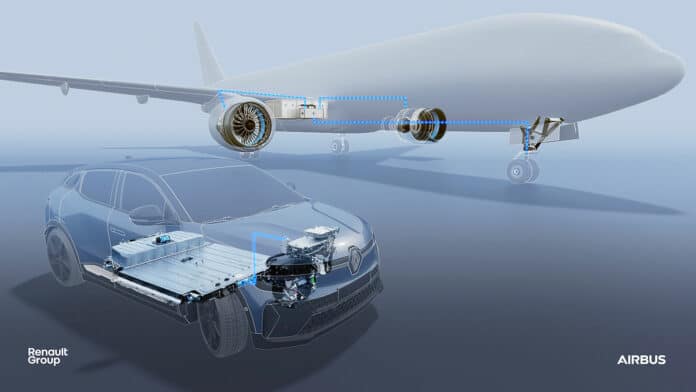Airbus and Renault Group have signed a research and development agreement that aims at enhancing transversalities and synergies to accelerate both companies’ electrification roadmaps, improving their respective range of products.
This partnership will help Airbus mature technologies associated with future hybrid-electric aircraft. Through this partnership, the engineering teams of both companies will join forces to mature technologies related to energy storage, which remains one of the main roadblocks to the development of long-range electric vehicles.
The agreement will notably cover technology bricks related to energy management optimization and battery weight improvement and will look for the best pathways to move from current cell chemistries (advanced lithium-ion) to all solid-state designs, which could double the energy density of batteries in the 2030 timeframe.
The team will also study the full lifecycle of future batteries, from production to recyclability, in order to prepare for the industrialization of these future battery designs while assessing their carbon footprint across their entire lifecycle.
“For the first time, two European leaders from different industries are sharing engineering knowledge to shape the future of hybrid-electric aircraft,” said Gilles Le Borgne, EVP, Engineering, Renault Group. “Aviation is an extremely demanding field in terms of both safety and energy consumption, and so is the car industry.”
“At Renault Group, our ten years of experience in the electric vehicle value chain gives us some of the strongest feedback from the field and expertise in the performance of battery management systems. Driven by the same ambition to innovate and reduce the carbon footprint, our engineering teams are exchanging with those of Airbus to converge transversal technologies that will enable both hybrid aircraft to be operated and the vehicles of tomorrow to be developed.”
Airbus and Renault Group’s cooperation on electrification will play an important role in bringing change to the transport landscape, successfully contributing to the ambition of net-zero emissions by 2050 in both the automotive and aviation sectors.
